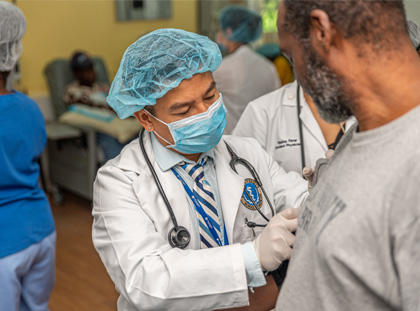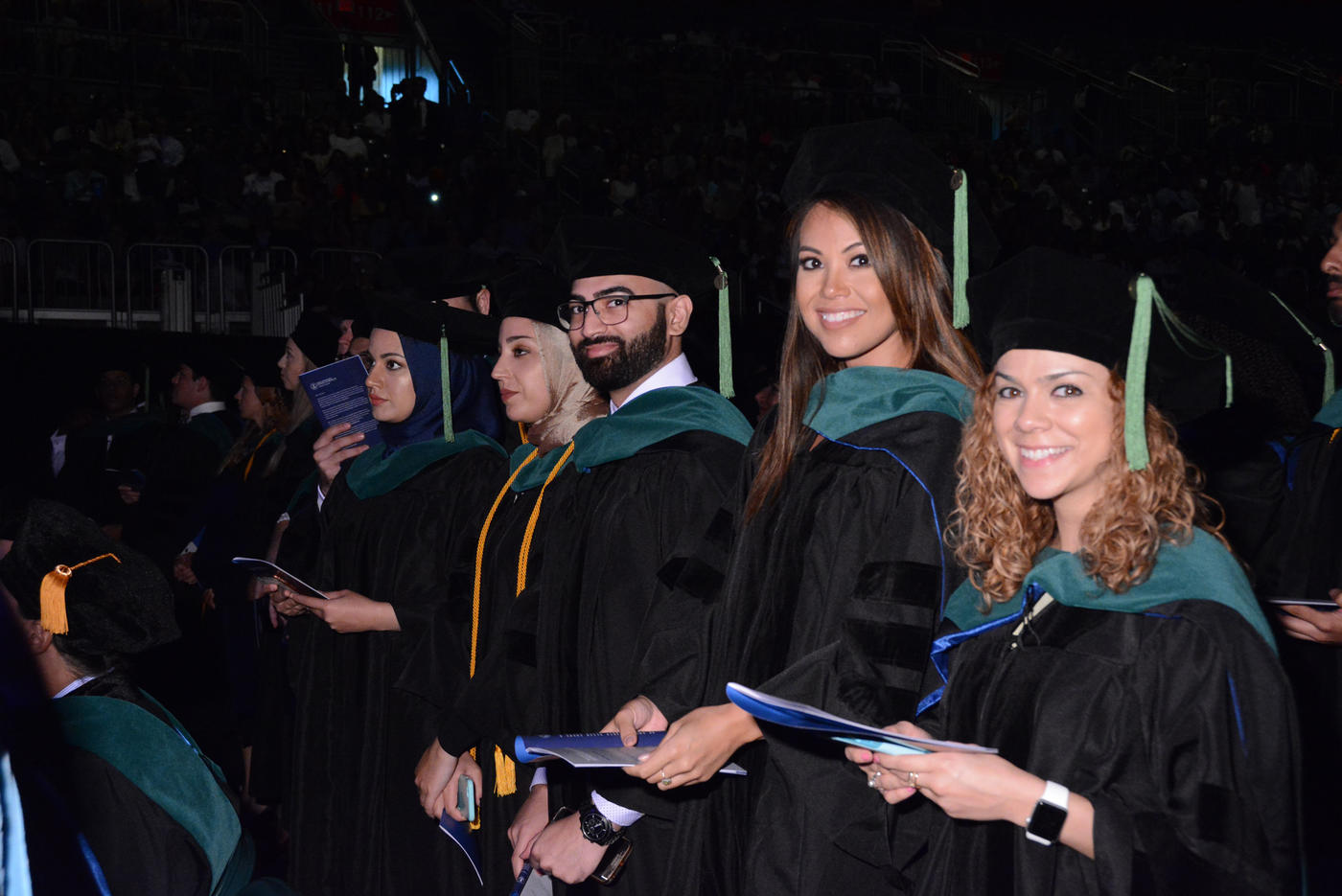If you plan to apply to medical school, you will want to prepare for and take the Medical College Admission Test® (MCAT®), a standardized, multiple-choice exam administered by the Association of American Medical Colleges (AAMC). The score you receive on this exam will help determine your chance of acceptance into an accredited medical school—such as Ross University School of Medicine (RUSM)*.
Students often ask: how is the MCAT scored? and what is the MCAT score breakdown? Read on to find answers to those and other questions, but visit the AAMC’s MCAT page if you want to know the detailed scoring scale or other MCAT information.
The MCAT covers information learned in such undergraduate courses as biology, general chemistry, organic chemistry, physics, biochemistry, psychology, and sociology. The information tested is at the introductory level, but you will need to be proficient in all the subjects and skills associated with those disciplines. Taking an MCAT preparation course and studying independently can help improve your chances at a good score.
After taking the test, if your score is not up to par, you may decide to take the MCAT again. Many students take the MCAT more than once to see if they can improve their score as well as their chances of getting into a desired medical school. It is important to note, however, that you can only take the MCAT three times within one year, four times within two years, and up to seven times total. Medical schools will be able to see all MCAT results, bad or good, but they will also notice any noted improvement.
MCAT Score Breakdown
No matter when or where or how often you take the MCAT, your scores will be scaled and equated the same every time. The MCAT score breakdown focuses on the number of correctly answered questions and the scaled score for each MCAT section.
Your MCAT results are first tallied by the number of correct answers in each of the test’s four sections. Students should know that wrong answers and unanswered questions count the same. There is no additional penalty for wrong answers, so don’t leave anything blank. It is a multiple choice exam, so your best guess is better than no guess at all.
Your raw correct answer tally is then put through the MCAT score scale, which converts each section score into a range from 118 (the lowest you can get on each section) to 132 (the highest). The scale does not operate on a one-to-one basis with your raw score, but rather on a range scale. For example, answering 15 or fewer answers correctly (out of 59) on one section may net you the lowest score of 118, while getting 57 to 59 correct answers in a section may earn the maximum 132. A 118 in each of the four sections equals “try again,” while four scores of 132 will earn you a perfect 528 MCAT score.
The raw scores are converted to scaled scores because—to prevent repetitiveness or cheating—the MCAT test comes in many forms. The different versions of the exam all measure the same medical science concepts and skills, but each form asks different sets of questions. Each form is about the same in difficulty, but one may be slightly more or less difficult than another. The conversion of number correct scores to scaled scores, then—through a process called equating—compensates for small variations in difficulty.
How is the MCAT Scored According To Each Section
Your final MCAT score is the sum of your scores from each of the MCAT’s individual sections. The MCAT section scores come from these four categories:
- Chemical and Physical Foundations of Biological Systems (CPBS)
- Critical Analysis and Reasoning Skills (CARS)
- Biological and Biochemical Foundations of Living Systems (BBLS)
- Psychological, Social, and Biological Foundations of Behavior (PSBB)
Each MCAT section has between 53 and 59 questions for you to answer. As noted above, the number of correct questions are weighted to equate between 118 and 132. The average score for each MCAT section is usually around 125. Your mastery of the topics tested will reflect in your final score.
MCAT Scores and your Medical School Application
The total MCAT score range is between 472 and 528. The average MCAT score is around 500. You will want to try to have the strongest MCAT score possible. When preparing to apply for medical schools, you should research your desired school’s average MCAT score for admission. This AAMC table measures acceptance rates for medical school applicants by crossing GPA with MCAT scores.
As you might expect, a high percentage of students with both a good GPA and a good MCAT score are accepted to schools of medicine. But students may excel at one to make up for a deficiency in the other. A student with a lower GPA may be admitted with an outstanding MCAT score, or a student with a great GPA may make it even with a below average MCAT.
While the MCAT score is extremely important in the medical school application process, some medical schools—including Ross Med—practice a “holistic review” of applications, which looks at more than just MCAT and GPA. A holistic approach to admissions will also weigh a student’s background, life and work experiences, application essays, and more. Being well-rounded is very important.
Now that you have an answer to how is the MCAT scored?, dig in deeper and begin studying well in advance—anywhere from three to six months before test day. Ross Med’s MCAT page has more information on this important test, and you should also check out the MCAT FAQs. Learn more about Ross University School of Medicine’s MD program, take the MCAT, and apply for admission to RUSM to put all that knowledge to good use and begin your education to becoming a physician.
Related Resources:
- Medical School Admissions Requirements
- MCAT Prep: How To Study For The MCAT
- What Is A Good MCAT Score For Medical School?



